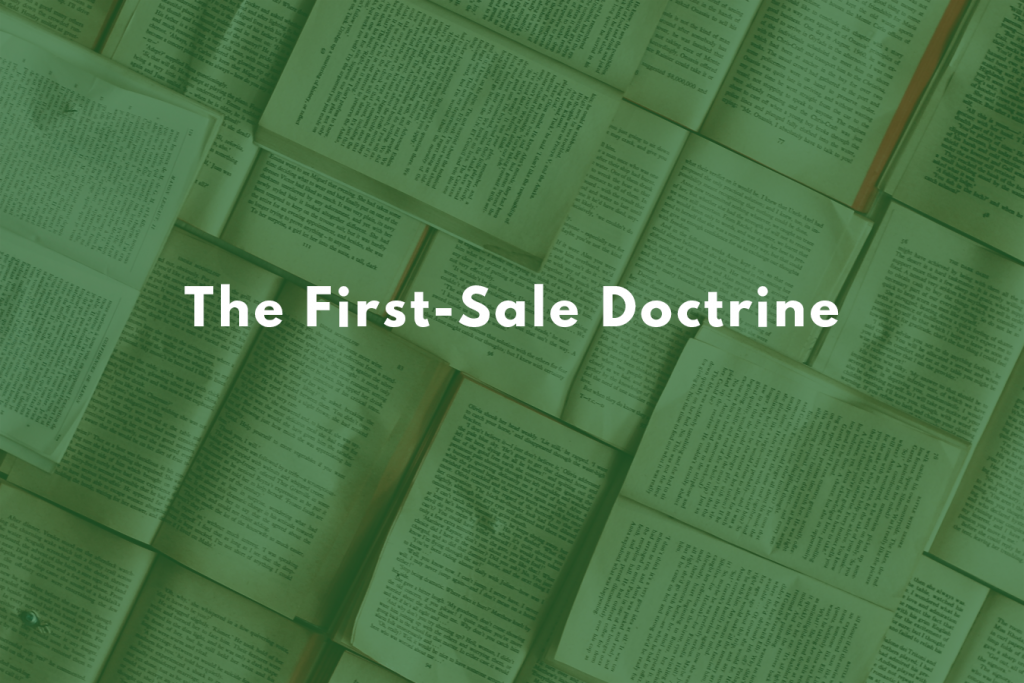January 1, 2019 was an exciting holiday in the United States. We’re not talking about New Years — January 1st marked Public Domain Day, where published and copyrighted works entered the public domain in America for the first time in over 20 years. This little-understood piece of copyright law means that a wide selection of works from 1923 will now be free for all Americans to use without needing to secure permission for the privilege.
Public domain laws are an integral part of making copyright law fair for everyone, but they’re not the only clauses that give power to people without copyright. Possibly less understood but just as important is the First-Sale Doctrine, which lets anyone who doesn’t hold copyright to resell an item under certain circumstances.
It is important to note that the First-Sale Doctrine is not all-encompassing. However, when properly understood and used, the First-Sale Doctrine gives Americans important freedoms for handling and selling their legally owned and imported goods.
What is the First-Sale Doctrine?
First, it is important to know what the doctrine does not cover. One of the most famous cases involving the doctrine was a 2013 incident involving a student who was importing and reselling textbooks. The case went all the way to the Supreme Court before being declared a legitimate use of the First-Sale Doctrine because of the intricate legalities, but the case could have easily been against the student as the lower courts had ruled. Not every application of the First-Sale doctrine is created equally — as of December 2018, it has been affirmed that digital music files do not fall under the doctrine and cannot be resold, for example.
What the doctrine does cover you could call an eBay law, though the law dates back to earlier than the website itself! Essentially, if you are the legal owner of an item, you can do what you wish with it. If you want to sell a DVD copy of a movie you legally bought, you can do so, because you are not attempting to buy or sell the underlying copyright to the movie. This facilitates legal grey market movement of goods, and it’s also the reason the used book store on the corner is perfectly legal.
The one thing you can’t do is make more copies of a copyrighted item, because you don’t own the underlying rights when you buy a single copy.
Using the First-Sale Doctrine
You have the right to claim the First-Sale Doctrine from the moment you buy a copy of a copyrighted work until the moment you sell it, and no legal action needs to be taken to use the doctrine; if you sell a copy of a copyrighted work that you legally own, you have used the doctrine. Note that protection does not extend to any copies you personally made of the work.
In addition, not everything you buy fully belongs to the purchaser, so you should ensure the purchase agreement of any item that you may wish to resell under the First-Sale Doctrine. Computer software licenses stipulate that you purchased access to the software and are not the owner of the copy you bought, so you won’t be able to legally resell an old copy of Microsoft Word under the doctrine.
Under American law, imported goods do fall under the First-Sale Doctrine. Imported books that were purchased second-hand in other countries, for example, can legally be sold in the United States without notifying the copyright holder. This opens up a niche business opportunity for anyone dealing in rare media and hard-to-find goods, as the process does not need to be complicated by international copyright laws.
Have questions about importing copyrighted materials you own? Contact us today!






